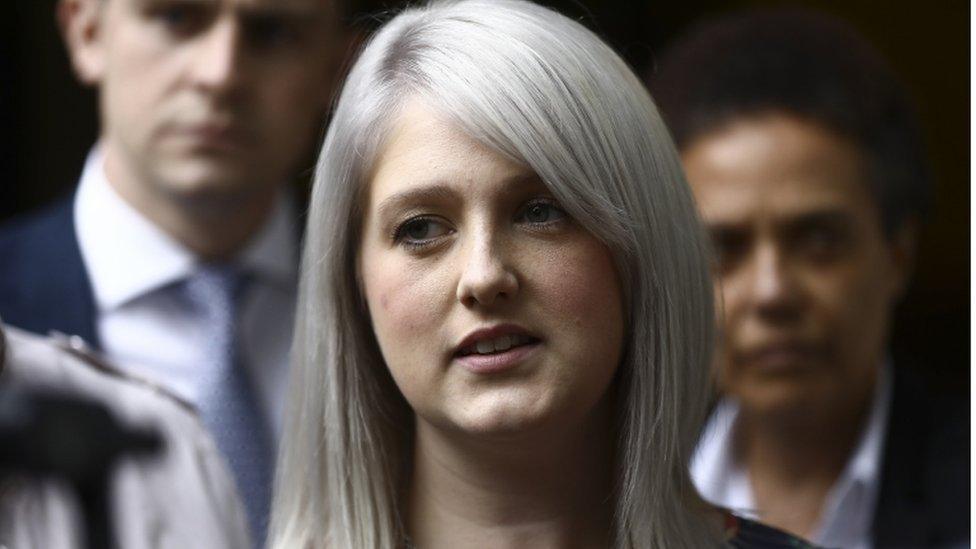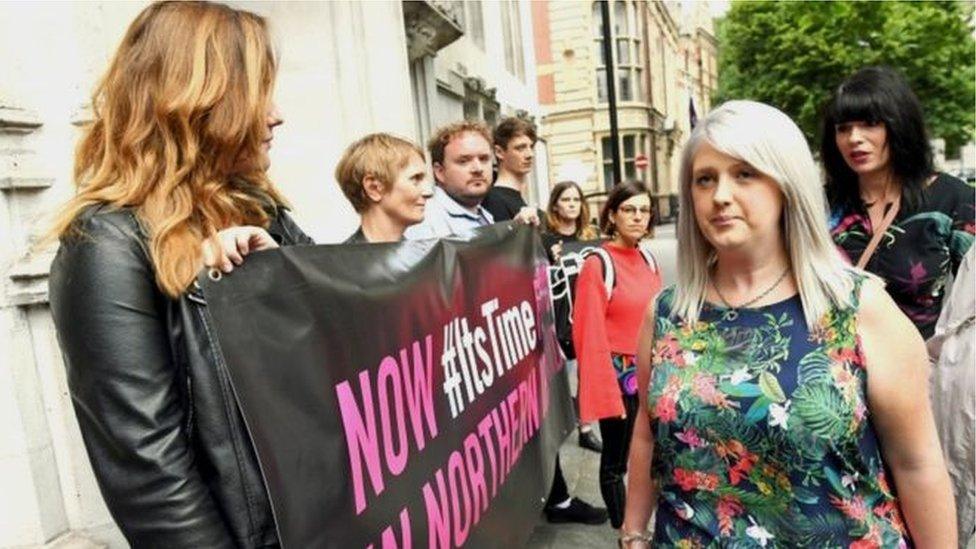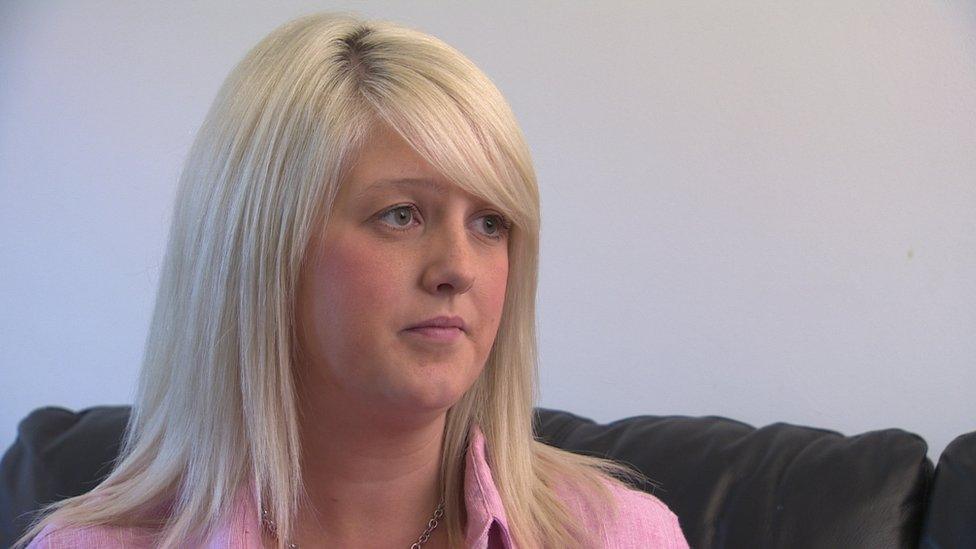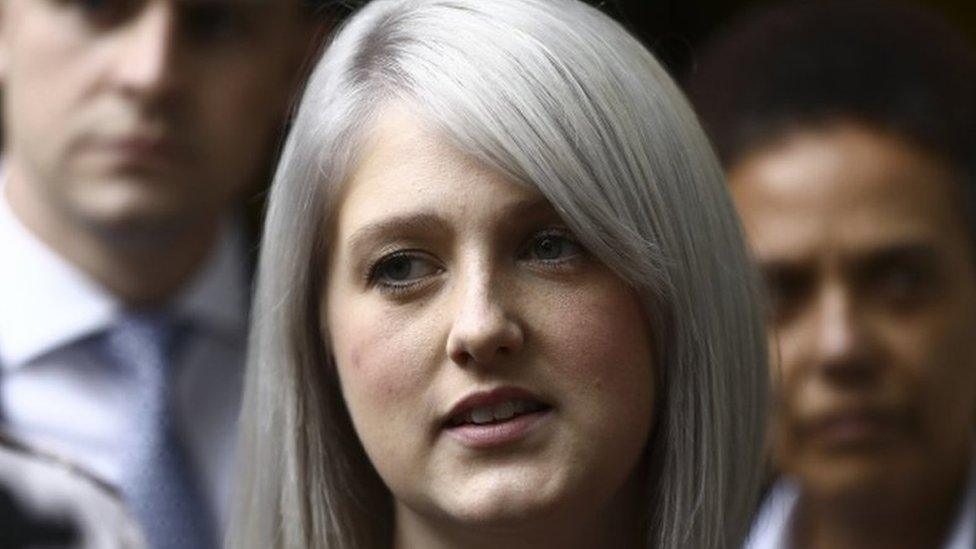Abortion law: Sarah Ewart wins right to challenge NI law
- Published

Sarah Ewart has been granted leave to seek a judicial review challenging Northern Ireland's abortion laws
A Belfast woman has won permission from the High Court to challenge Northern Ireland's strict abortion laws.
Sarah Ewart was granted leave to seek a judicial review, amid claims the near-blanket ban breaches her human rights.
On Wednesday, a judge ruled that she had established an arguable case against the departments of justice and health at Stormont.
Ms Ewart has long campaigned for a change to NI's law in cases of fatal foetal abnormality.
Five years ago, Mrs Ewart, 28, travelled to England for a termination after being told her unborn child would not survive outside the womb.
Unlike in other parts of the UK, terminations are only legal within Northern Ireland to protect the woman's life or if there is a risk of serious damage to her well-being.
Mrs Ewart had backed a previous challenge taken by the NI Human Rights Commission.
Earlier this year, the Supreme Court concluded abortion laws in the region in cases of rape, incest and fatal foetal abnormality were incompatible with human rights law.
But the judges still rejected the commission's case because it did not have the necessary legal standing.
January 2019
Mrs Ewart has now brought a case in her own name, as a woman directly affected by the abortion legislation, and has vowed to see her legal fight "through to the end".
She sought to judicially review the NI secretary, the departments of health and justice at Stormont, and the Executive Committee.
Her lawyers argued that the current regime breaches Article 8 of the European Convention on Human Rights, dealing with entitlements to private and family life.

Sarah Ewart arriving at the Supreme Court in London in June
Counsel for the NI secretary insisted it was a matter for the devolved administration at Stormont.
Mr Justice McCloskey rejected the case brought against both the NI secretary and Executive Committee.
He held that neither entity was subject to any relevant legal power, discretion, function or duty.
"In the applicant's quest to establish that the relevant provisions of the 1861 (Offences Against the Person) Act and the 1945 Criminal Justice (Northern Ireland) Act are incompatible with Article 8 of the Human Rights Convention, the court grants leave to apply for judicial review against the Department of Justice and the Department of Health only," he said.
"The court will programme this case in such a way that the substantive stage of the proceedings will be completed not later than January 2019."
Mrs Ewart was unable to attend the High Court, but Grainne Teggart of Amnesty International, who has backed her case, said: "Sarah is taking this case, not just for herself, but for all the women in these circumstances.
"Women shouldn't be forced through our courts to have their rights realised."
- Published29 June 2017

- Published7 June 2018
